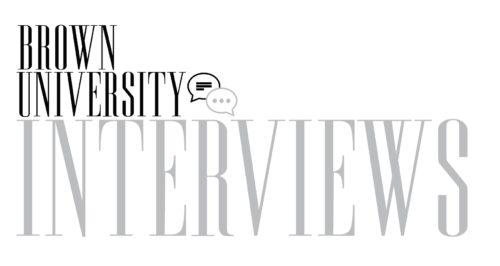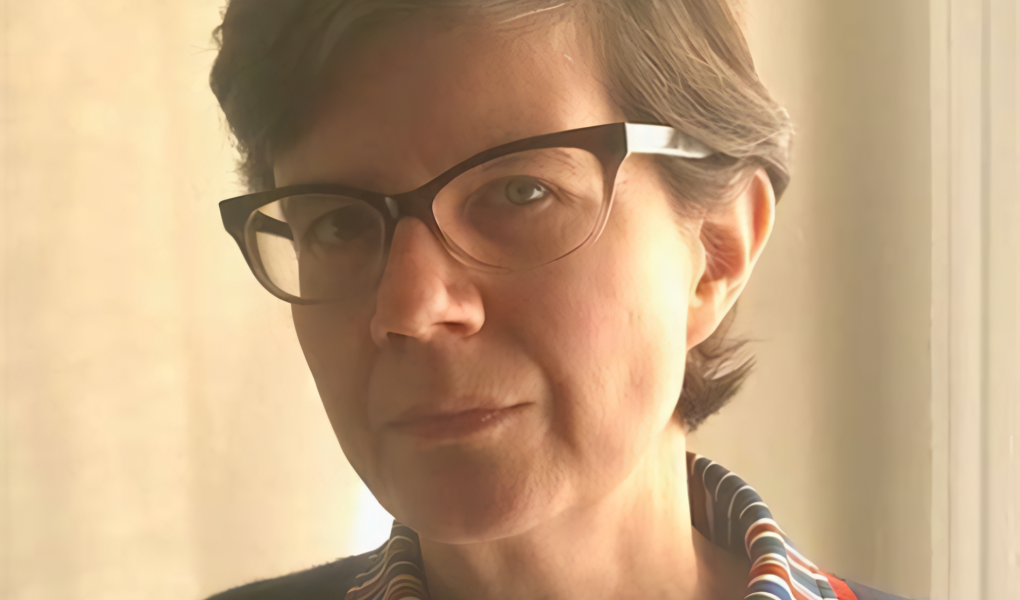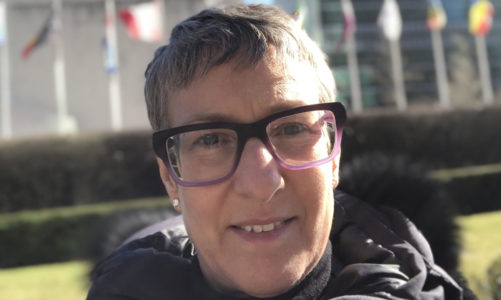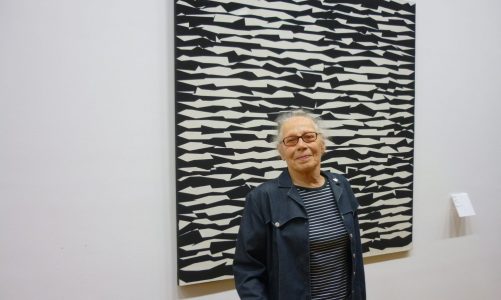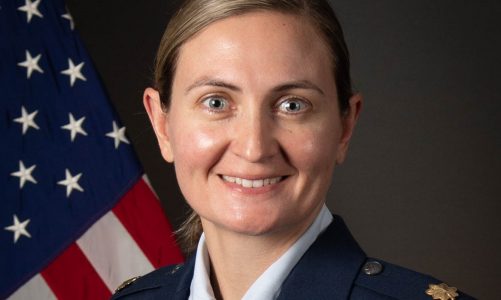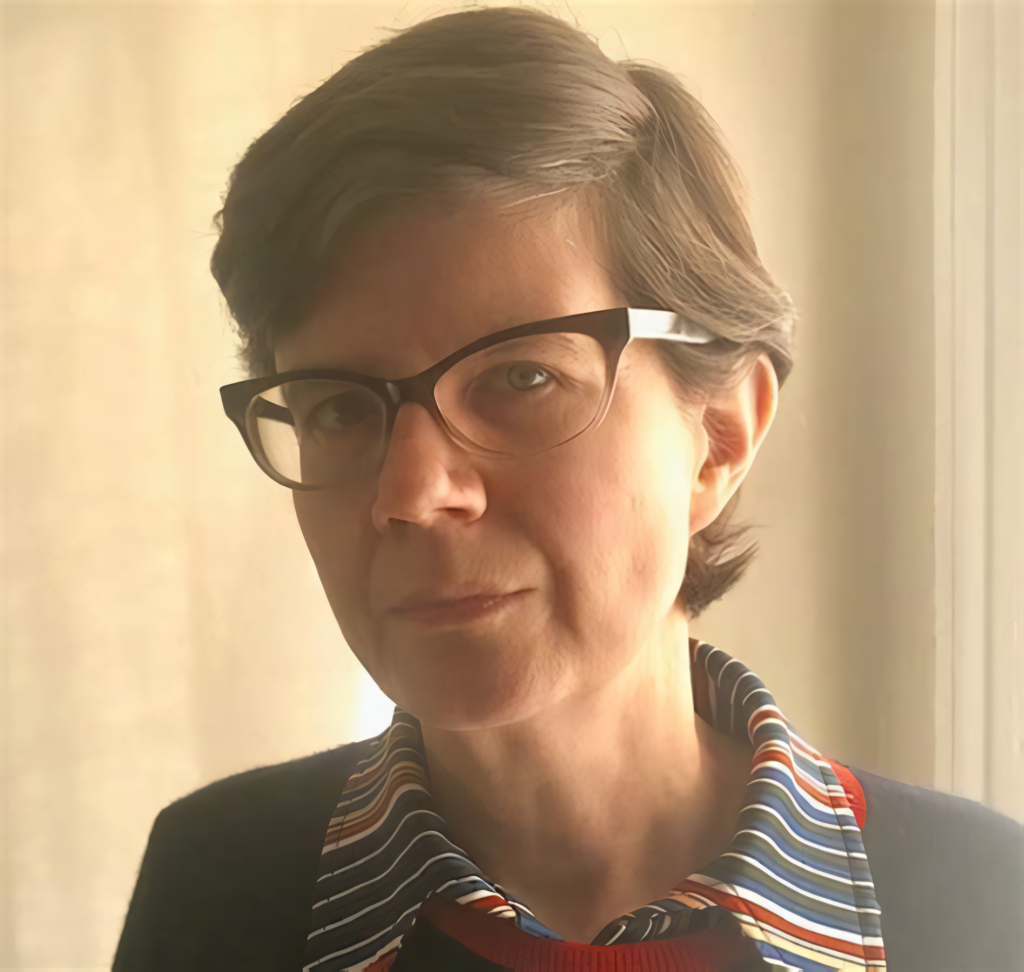
Melissa Anderson is a film critic based in New York. She has served as the film editor of 4Columns since 2017 and frequently writes for the publication along with Artforum and Bookforum. Born and raised in Pennsylvania, Anderson previously wrote for The Village Voice, where she served as the senior film critic from November 2015 until September 2017. In 2021, Anderson released a monograph on David Lynch’s Inland Empire as part of Fireflies Press’s Decadent Editions series.
In this interview, we discuss Anderson’s approach to criticism, including how gender and sexuality inform her writing, her favorite parts of cinema – including the directors and movies she admires – and her inspiration behind writing Inland Empire.
Olivia Hanley: What first got you interested in journalism, and specifically cinema? Is there a key moment in your life that you can pinpoint when you decided to become a critic?
Melissa Anderson: I have a vivid memory of what first planted the seed. In my senior year of college, I saw this incredible movie: a 1967 documentary called Portrait of Jason, directed by a woman named Shirley Clark. It was unlike any movie I had ever seen. The director is seated behind the camera and just leaves it running. over the course of a very long evening, an acquaintance of hers, a very flamboyant gay black man named Jason Holiday, drinks and smokes some pot and tells story after story about his life. But on occasion, you can hear the director giving him commands. So often in documentaries up to that time, the filmmaker would try to be invisible, but because we can hear her, she becomes, in a way, a character in the film that she’s creating. I was only 20 or 21 at the time, but I saw this, and I thought, “this is unlike anything I’ve ever seen.” It was at that moment that I thought maybe this could be an interesting career for me to try to make sense of.
Fast forward to nine or ten years later: I was in graduate school, and I wrote a paper about Portrait of Jason. I submitted it to a competition in a prestigious New York City-based film publication, Film Comment. My essay was selected as the winner, and I had the great fortune to get it published. So writing about Portrait of Jason was my entry into writing about films.
Skipping ahead a bit, let’s talk about your time at The Village Voice as their senior film critic. How did working at an “alternative counterculture publication” inform your writing?
It was always a dream of mine to write for The Village Voice. I started reading that paper while I was in college, and I just devoured it. There was so much to learn. I would freelance for the paper on and off from 2000 through 2015. Then I was on the staff from 2015 to September 2017. Writing at the Voice was crucial. My editor would assign me to cover all kinds of things: documentaries from Brazil, horror movies from Japan, or the tiniest micro-budget indie cinema from Croatia. I just said yes to everything. At the Village Voice, you were encouraged to be as crazy as you wanted. And they really appreciated the attention to bizarre details. I didn’t have to worry so much about adhering to a house style, so I was able to develop my voice – no pun intended.
Then I became the senior film critic, and one of the great joys there was a weekly column I had where I was allowed to write about whatever I wanted. I was particularly interested in calling attention to the repertory cinema offerings in New York City. I mostly wrote about older cinema but looked at it from the present day. This gave me the ability to focus on something that might have been showing at a theater only once, say on Thursday at 10 o’clock at night. But if I thought it was important or interesting, I had carte blanche to write about it.
Now you’re writing for 4Columns. What has your time been like there?
I left the Village Voice in September 2017. A couple of days later, I started at 4Columns, where I’ve been the film editor and the lead film critic ever since. It is one of the best jobs I’ve ever had. As the name of the publication implies, there are only four pieces of criticism a week. At the Village Voice or other New York film publications, we were mandated to cover almost every single film that opened in the city, and that could sometimes be up to 20 or 25 films a week. At 4Columns, I can spend a lot more time crafting the pieces that I’m writing. This method lets me and my other writers really think about what we’re writing as not just a film review but an argumentative essay. It leads to richer, more interesting writing.
I was particularly struck by your piece on Great Freedom, a prisoner’s cinema movie starring Franz Rogowski. What was the role of prisoner’s cinema within that piece of work?
Great Freedom is trying to be a film about the plight of a gay man in prison. The film that’s most germane to the discussion surrounding prison cinema is a pretty famous one I’m looking at now: a very early entry into queer cinema called A Song of Love. It’s the only film by the French writer Jean Genet. It’s about half an hour. The film is very homoerotic and, at the same time, very poetic. [A Song of Love] is an inspiration for another great work of queer cinema: Poison by Todd Haynes, which came out in 1991. That’s a whole other genre of prison cinema —women in prison— that was popular in the 1940s and then again in the 1960s and 1970s. [Those films are] often pretty campy and deliberately tawdry. All of these films and subgenres of prison cinema inspired Great Freedom, though I don’t know if the film was particularly successful.
You often refer to yourself as a ‘lady journalist.’ What does that term mean to you?
The term ‘lady’ has often been used disparagingly as a way to dismiss people. I kind of liked reclaiming ‘lady’ as something to be proud of. It’s also important to me that I’m very, very out. I think people who’ve read maybe two pieces by me would be able to surmise pretty quickly that I am a homosexual. I’ve never wanted to hide that. I will often use the first person, particularly when I’m talking about queer cinema. Often I cannot help but use the first-person singular pronoun.
Historically, film criticism has been a pretty male-dominated field. Saying things like ‘lady journalist’ or ‘lady film critic’ is a way of staking out a claim that I, as a queer woman, am bringing a very particular style and sensibility to my writing.
I love that. Thank you. In the same vein, how does your identity inform your work and your writing?
This is very apropos of what I’m currently reviewing. When one is writing about movies, even today, in 2022, most movies are about heterosexual couples. As someone who has never been heterosexual, I watch these films, and I anthropologically observe what is happing on screen, trying to figure out how this coupling works. Conversely, when I’m writing about queer cinema, I don’t want to be a cheerleader and automatically believe it’s going to be good. It’s very important to me to puncture the received wisdom that if a film is about a non-normative couple, it will automatically be good or interesting.
In your lifetime, how many movies do you think you have seen?
In my whole life? I’m going to say 12,000.
I obviously have to ask you some of your film opinions. Talk to me about some of your favorite movies of all time. What is it that makes them special?
My favorite film of all time is David Lynch’s Mulholland Drive, which came out in 2001 and is an incredible love story between two women. This film enraptured me, hypnotized me even, and I ended up seeing it twice within less than 12 hours. It was like a drug. I could not get enough of it. No exaggeration; I’ve probably seen the film 35 to 40 times. It’s also an incredible tribute to other films like many of David Lynch‘s movies are. Mulholland Drive, both overtly and covertly, is a tribute to a great film by Alfred Hitchcock called Vertigo. If you love movies, Mulholland Drive is a great movie that’s also about cinema love. It keeps you in suspense every single second. You’re never quite sure what’s going to happen from moment to moment.
Another film that I love, which is quite different, is a 1967 French musical called The Young Girls of Rochefort by a director I revere named Jacques Demy. It’s this beautiful, pastel-hued, glorious celebration of love. Demy was absolutely besotted with American musicals, so his film is really a tribute to the MGM movies that he saw growing up, and it stars one of my favorite sister acts of all time: Catherine Deneuve, a pretty famous French actress and her real-life sister, Francoise Dorleac, who quite tragically died very young. Shortly after her death, this film was made.
Are there any specific film critics who have particularly inspired your writing style and your personal ethos regarding film criticism?
A critic who’s been extremely influential to me was a man named Boyd McDonald, who died in the mid-90s. He was a very out, gay film critic. I reviewed a collection of his criticism that was republished in 2015. He was so funny. Though he has a definite political stance, it’s not pedantic. He wears his political outrage very lightly. He also really pays attention to performers, which is something that I do quite a lot in my own criticism. So discovering him has been quite influential.
My friend, Nathan Lee, who wrote quite a lot of criticism in the early 2000s, is another big inspiration of mine. We had plenty of conversations about what criticism and film criticism can do, and, specifically, what we, as gay film critics, can do. I’ve also always admired Renata Adler, who served as the chief film critic at the New York Times in 1968. She always paid attention to the strangest details. I find that sometimes if you can find one bizarre detail and expand on that, you can make some of the most interesting writing.
Your book Inland Empire, which came out in January of 2021, explores the titular film by David Lynch and includes an inspiring performance by Laura Dern. Can you give our readers a taste of what this book is about, the process behind writing it, and how your own identity informed its creation?
Inland Empire has been a great challenge, but one that ended up being very productive. A couple of months ago, I published a small book about Inland Empire, which is a part of a series at Firefly Press called The Decadent Editions. It will ultimately be a series of 10 books, each about one film from each year of the 2000s. Inland Empire was said to be David Lynch’s last film, though he continues to work. As I mentioned previously, Lynch is a filmmaker I’ve admired for decades, and Inland Empire is totally baffling. It’s a work of an intense stream of consciousness, and a lot of it logically does not make any sense. So right off the bat, I knew it would be interesting for me to try to make sense of the film. I’d try to decode [things like]: when these people appear in rabbit costumes or the film goes to Poland, what does that mean?
What really interested me was examining the woman who’s the star of the film, Laura Dern, an actress who’s long been associated with David Lynch and whom I have long respected. She made Blue Velvet with him when she was a teenager and then Wild at Heart. I knew that focusing on Laura Dern and what she does in the film would be my way in. And that led me to talk more about actresses in general and what it means to dissect what an actress does on screen. This, in turn, led to exploring the perilous role of actresses, the casting couch, and [issues like] #MeToo and Harvey Weinstein. The challenge here was keeping one foot in reality because I didn’t want to stray from the film too much. But I was also incredibly interested in talking about what surrounds the film.
In terms of composition, the mode of the book is pretty much the same: you’re just trying to make an interesting argument… and trying to make jokes. You have got to bring the jokes; it’s important to have a couple of zingers. In this way, I’m combining both book criticism and film criticism.
What is next on the horizon for you? Are there any projects that you’re working on?
I’m putting together an anthology of my past film pieces (and maybe a couple of book pieces) from 2009 onward. I’m also working on a film series about the lesbian bar scene in cinema.
What guidance would you give to young people looking to go into journalism or a creative profession?
Be as ravenously curious as possible. Read all the time and go to as many different movies as you can; when I got my staff job at the Village Voice, I remember thinking to myself that the most interesting criticism shows that the person writing it is really curious about the world. I just tried to be out in the world as much as possible. But it’s not just about having a diet of movies, movies, movies. You can always tell when a film critic cares about nothing but movies because their criticism is usually pretty dull. They have no other references, so it becomes like an echo chamber. To anybody thinking about a career in journalism – criticism, especially – just be curious, talk to people, and most importantly, follow your hunches and follow your instincts.
*This interview has been edited for length and clarity.
